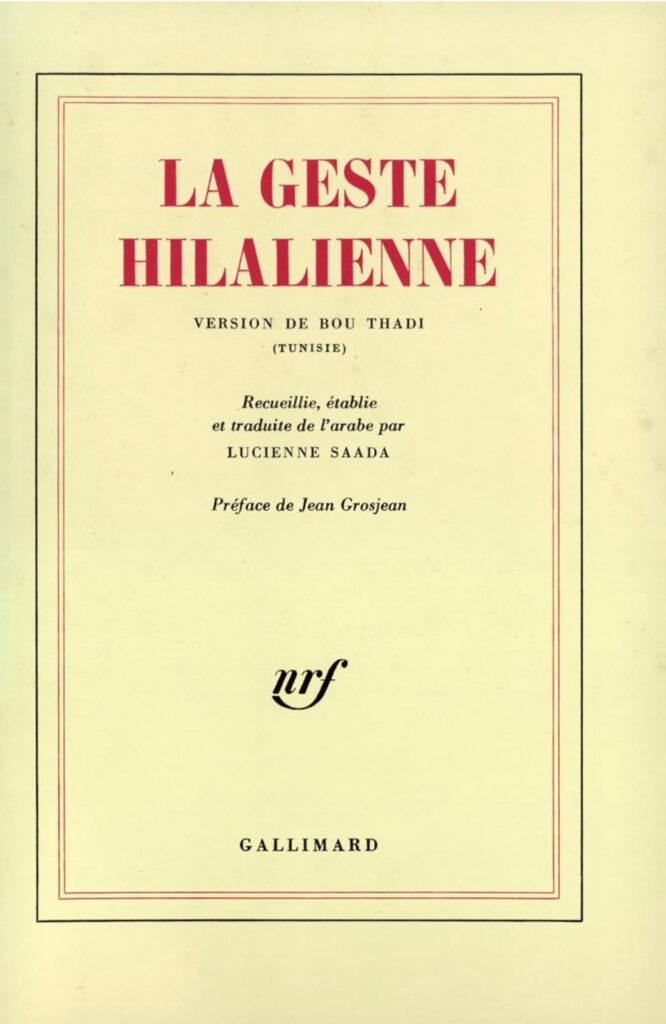Summer reading: the epic of Bani Hilal
I ordered this book on the epic of the migration of the Bani Hilal, in one of its Tunisian versions. The author interviewed one of the last oral reciters of this grand epic, an old Tunisian herder, and translated it into French. I The epic of the Bani Hilal is the Arabs’ equivalent to Homer’s Iliad. It is based off a historical event: the mass migration of the Bedouin tribe of Bani Hilal out of Arabia and into North Africa over the course of the eleventh century CE. Of course, like any epic, it consists of several cycles, each one with its heroes, vilains, love stories, betrayals, feats of courage, etc.

Hi Edouard: What caused the Bani Hilal to go all the way from central Arabia to North Africa?
best
Bruce Peek
Demographic pressure caused them to leave Arabia (najd and hijaz) and head to the Nile delta. There, they wreaked so much havoc that the authorities displaced them to Upper Egypt before sending them to devastate the lands of their enemies in Tunisia, and promised them this land. From Tunisia they multiplied and spread to the rest of North Africa. It was a mass migration, with cattle, women, and children, which researchers today estimate at 250,000 people over time as a conservative estimate, and up to 1 million. They partially Arabized North Africa, which had only been Muslim before, but ethnically Berber, because the first wave during Islamic Conquests in the VIIth century was only fights and not nearly that large (low thousands). People use Bani Hilal as a catch all term, but it was several tribes, Hilal, Sulaym (from which the Tahawi descend), Maaqil, Nayil, etc.
From wikipedia: “The number of Hilalians who moved westward out of Egypt has been estimated as high as 200,000 families. Cyrenaica was left to be settled by Banu Sulaym while the Hilalians marched westwards.” Note wiki said families not indviduals.
https://en.wikipedia.org/wiki/Banu_Hilal
Aha! – So ( hate to keep pounding on a possibly wrong historical theory -but…) if they brought their kids and livestock then they brought their horses— and would have most likely bred them to the local livestock.. Which explains the high quality of the ,’Barb,’ horses used to mold both the Thoroughbred and Spanish Jenets, and through them the Andalusians..
best
Bruce Peek
Yes, they also brought their horses and camels too. And since camels don’t climb mountains, if you overlay a geographical map (indicating mountain areas) with a linguistic map (indicating where Berber is spoken), you will feed a strong correlation.